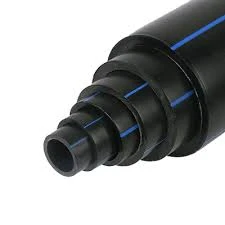окт. . 31, 2024 16:00 Back to list
High-Density Polyethylene Drainage Pipe Applications and Benefits for Efficient Water Management
Understanding HDPE Drainage Pipes Benefits and Applications
High-Density Polyethylene (HDPE) drainage pipes have become increasingly popular in various applications due to their numerous advantages. Made from a robust polymer, HDPE pipes offer excellent durability, flexibility, and resistance to a wide range of chemicals and environmental conditions, making them an ideal choice for drainage systems in both residential and industrial settings.
Understanding HDPE Drainage Pipes Benefits and Applications
Another significant advantage of HDPE pipes is their corrosion resistance. Unlike metal pipes that can rust or corrode over time, HDPE pipes are inert to many substances, ensuring their longevity. This resistance is particularly beneficial in environments where pipes might be exposed to corrosive chemicals or harsh weather conditions. As a result, HDPE drainage systems often require less maintenance and have a longer lifespan compared to traditional materials.
hdpe drainage pipe

HDPE pipes also exhibit remarkable flexibility. This feature allows them to bend around obstacles without compromising their structural integrity, making them ideal for installation in areas with challenging terrain or changing landscapes. Furthermore, their smooth inner surface reduces friction, allowing for optimal fluid flow and decreasing the likelihood of blockages. This characteristic is especially advantageous in drainage applications where efficient water transport is crucial.
In terms of environmental impact, HDPE pipes are considered eco-friendly. They are manufactured from recyclable materials and can be reused multiple times. Additionally, the installation of HDPE drainage systems often leads to reduced reliance on non-renewable resources, contributing to more sustainable construction practices. More importantly, their longevity and reduced need for maintenance mean fewer resources are consumed over the life of the pipe.
The applications of HDPE drainage pipes are vast. They are commonly used in stormwater management systems, agricultural drainage, sewer systems, and various industrial applications. Their ability to handle large volumes of water efficiently makes them a prime choice for municipalities and construction projects alike. As urban areas continue to expand, the demand for reliable drainage solutions increases, further solidifying the role of HDPE pipes in infrastructure development.
In conclusion, HDPE drainage pipes provide a significant upgrade over traditional drainage materials. Their lightweight nature, corrosion resistance, flexibility, and environmental benefits make them a superior choice for a myriad of applications. As industries continue to recognize the importance of sustainable and efficient infrastructure solutions, the use of HDPE pipes is likely to grow, helping to ensure effective drainage systems for generations to come. Whether it's for managing stormwater or optimizing agricultural practices, HDPE drainage pipes are set to play a crucial role in modern infrastructure.
-
PP U-channel: Chemical-Resistant, Lightweight & Durable
NewsAug.10,2025
-
Transparent PVC Pipe: Clear Flexible Tubing for Fluids
NewsAug.09,2025
-
Durable PP Rigid Sheet: Versatile & High-Quality Plastic Panels
NewsAug.08,2025
-
Premium Glossy PP Rigid Sheet – Durable & Versatile
NewsAug.07,2025
-
High-Quality HDPE Sheet | Durable Plastic Panels
NewsAug.06,2025
-
High-Precision PVC Rigid Sheets for Vacuum Forming | AI-Optimized
NewsAug.05,2025

